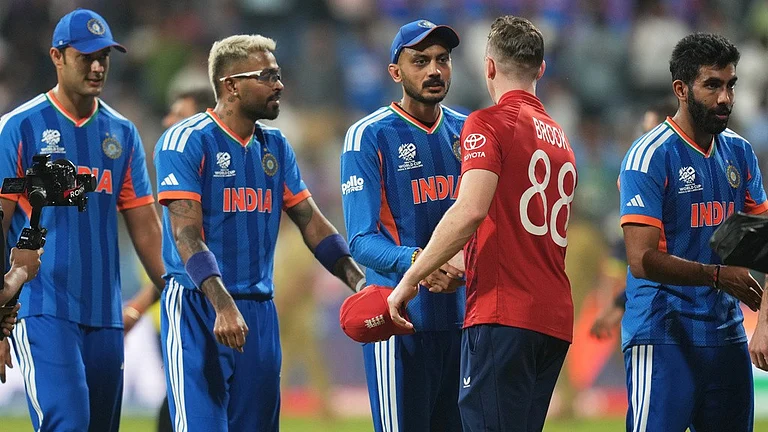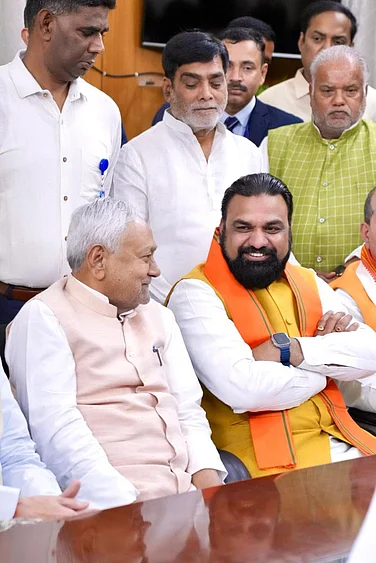Accepting the long-standing demands of Adivasi-Moolvasis in Jharkhand, Hemant Soren government on Wednesday gave its nod to use 1932 land records to demarcate the local inhabitants of the state. The residents whose ancestral lands had been registered in the Land Survey of 1932 will be considered ‘Jharkhandi’. However, both the landless persons and the families whose names are not included in ‘Khata’ may approach the Gram Sabha for their inclusion.
This decision came in the backdrop of continuous political turmoil that the state has been passing through. Amidst the allegations of BJP putting effort to topple Jharkhand Government, Soren called for a trust vote in the assembly and pulled up the issues of domicile policy. Ironically, it was only six months back that Soren said that the 1932 Khatiyan would not be the only marker of the domicile policy as it would fail the judicial scrutiny.
However, the sources said this time the Government is set to pass the bill in both houses before sending it the Central Government for its final nod. It is also said that Soren will ask the Centre to put it under the ninth schedule to avoid judicial scrutiny. The ninth schedule consists of state and central laws that cannot be challenged in the courts.
This move nevertheless was anticipated as just days after the JMM won the trust vote Jharkhand Education Minister Jagannath Mahato said that the BJP-AJSU leaders would soon be unemployed as the JMM would soon implement the 1932 Khatiyan as the benchmark for identifying the locals. Notably, former BJP CM Raghubar Das wanted 1985 as the cut-off year for demarcating the locals.
1932- Ek Bhawna (An Emotion)
While there were celebrations across the state for Soren’s acceptance of long-standing demand, a few wanted to term it as ‘victory of a movement, not any benevolence’. While speaking to the Outlook, S Ali, the president of All Muslim Youth Association (AMYA) told, “1932 is a feeling- an emotion. Every state has got its own identity. But Jharkhand has been fighting for its own ‘pehchan’ for decades”. Referring to the policy taken by the Bihar Government on March 3, 1982, to privilege the locals in employment Ali added, “The Bihar Reorganization Act, 2000 clearly mentions that the policies and facilities of the state would be translated to the newly born Jharkhand. Still, it took so many years for the people to achieve it.”
The question of Jharkhand state formation was filled with the debate between insider-outsider. The major fight of Adivasi and Moolvasis was against the cultural and economic exploitation of the regional resources by "outsiders". Nevertheless, referring to the ongoing exploitation, Mumtaz Khan, the president of Jharkhand Andolankari Morcha (JAM) and a former Central Committee Member of JMM told the Outlook, “People from outside have been coming here for centuries. They have exploited all the resources that we do have. They are employed everywhere. Even in fourth-grade staff, one can hardly find the locals. In this situation, we must identify the privilege our own people over others”.
On being asked what would happen to those people who would fail to present their documents, Khan continued, “Look, 1932 Land Survey and Revenue register is with the Government. If anyone wants to get their documents, they can easily access it. And for those who don’t have land, the Government has already mentioned that they can approach Gram Sabha for identification”. However, as Khan said the problem would be with all those villages that came after 1932. For those cases, the Government may consider later surveys as well.
People will be Refugees: BJP MLA
Political observers, however, are of the opinion that by putting the onus of passing the bill on the Central Government, Soren has thrown a political challenge, the local BJP leaders are all set to oppose the decision at the state level only. Speaking to the Outlook, Bishrampur MLA and BJP leader Ramachandra Chandravanshi told, “Raghubar Das had made 1985 the cut-off after long-held discussions. To take it back to 1932 would result in marking millions of people as refugees. The families not enlisted in the survey would lose everything. We would not let it happen”. “BJP state leadership is going to meet tomorrow and would plan their moves accordingly for the upcoming days”, Chandravanshi added.
However, the demarcation of the ‘locals’ only means that they would be given privileges in public and private employment. The BJP-JMM fight has intensified over the last few months as there have been allegations against BJP to bribe the JMM MLAs in a bid to topple the Government.























